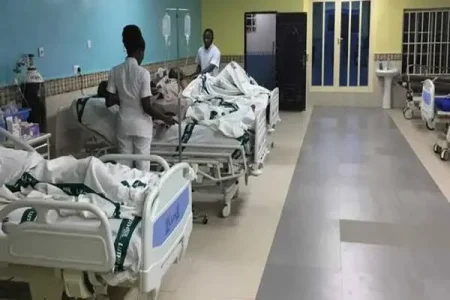
Kwara State hospitals are facing a healthcare crisis as only 89 doctors remain in service out of the 200 needed. The mass migration of medical professionals abroad, known as the 'Japa' syndrome, continues to cripple the state’s health system.
- Kwara State currently has only 89 doctors in government hospitals, while 180–200 are needed to meet demand.
- The number slightly increased from 86 after three doctors returned due to improved salaries now matching federal pay.
- 'Japa' syndrome—the mass exit of professionals abroad—has deterred new applicants despite open recruitment.
- The state has introduced intern nurse programs to help replenish the workforce left by migrating nurses.
- Nigeria’s doctor-to-patient ratio stands at 1:5,000, far below the WHO's 1:600 recommendation.
Patients in rural Kwara communities face longer wait times, overcrowded facilities, and reduced quality of care due to the lack of medical personnel. Many doctors refuse to work in remote areas, despite better pay, highlighting the growing rural-urban divide in healthcare access.
Will salary increases alone be enough to reverse the brain drain? Without deeper reforms in infrastructure and working conditions, the exodus of health workers may continue to erode public trust in Nigeria’s health system.




